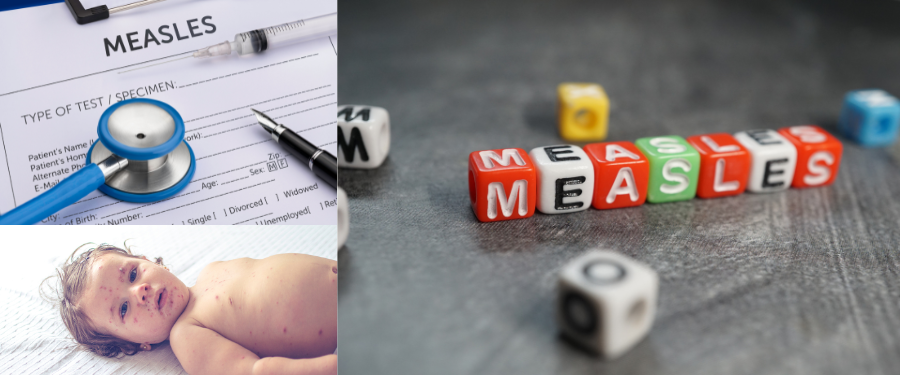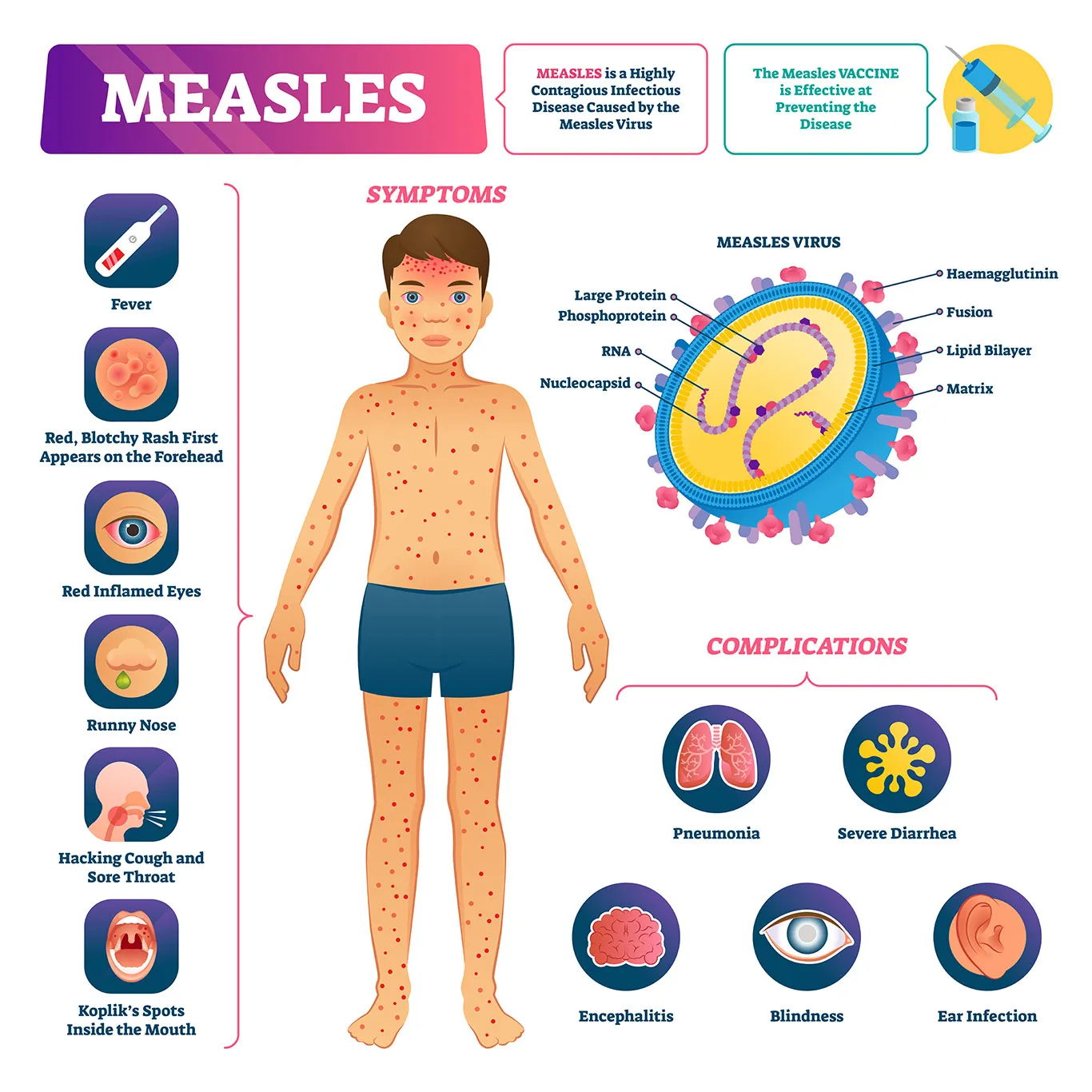What is measles?
Measles is very contagious and can cause serious illness. Measles is caused by a virus and spreads very easily when an infected person breathes, coughs or sneezes. Measles spreads so easily that anyone who is exposed and not immune (either by being immunized or having had measles in the past) will probably get it.
.png)
Getting vaccinated is the best way to prevent measles. And when enough people get vaccinated against measles, the entire community is less likely to get it.
The facts:
- Measles is very contagious. The measles virus can live for up to two hours in the air after an infected person leaves the room. Nine out of 10 unvaccinated people who are exposed to measles will become infected.
- The measles vaccine provides good protection. One dose of the measles-mumps-rubella (MMR) vaccine provides 93% protection against measles and two doses provide 97% protection.
- Most of the contacted individuals have been fully vaccinated and are at low risk for infection. All exposed individuals will need to be monitored for measles symptoms for 21 days.
- If infected, symptoms may not occur right away. Symptoms include high fever, cough, runny nose, watery eyes, and a rash beginning 3-5 days after other symptoms occur. Those experiencing symptoms should avoid contact with others and seek care from a healthcare provider. Notify the provider before arrival that you have a measles concern so that further spread can be prevented.
- Quarantine is needed for those individuals who were exposed and do not have documentation of vaccination or immunity to measles. People infected with measles can spread it to others, even before they have symptoms.
Vaccination reduces the risk of infection and severe disease. Measles can be serious, and about 1 in 5 people who get infected with measles will be hospitalized with complications such as pneumonia, dehydration, or brain swelling.
All Greene County residents who are not vaccinated, or unsure if they are vaccinated for measles, should talk to their healthcare provider about vaccination.
The Centers for Disease Control and Prevention recommends all children get two doses of MMR vaccine, starting with the first dose at 12 through 15 months of age, and the second dose at 4 through 6 years of age. MMR vaccine is also recommended for adults who are not vaccinated, or whose vaccination status is unknown.
The MMR vaccine is safe and effective with hundreds of millions of doses given. Contact your health care provider to get vaccinated. In addition, Public Health provides MMR vaccinations at its clinic located in the Reibold Building, 117 S. Main St. in downtown Dayton. To schedule an appointment, call 937-225-4550, Monday to Friday, 8:00 am to 4:30 pm.
Getting vaccinated is the best way to prevent measles. When you and your family get vaccinated, you help keep yourselves and your community healthy.
What to do if you were exposed to the measles.
Are there measles outbreaks in the U.S.?
There have been outbreaks in the United States. You can protect your family with the measles, mumps, and rubella (MMR) vaccine. Everyone 12 months of age and older should be up to date with MMR.
What are the symptoms of measles?
- Fever
- Runny nose
- Cough
- Red, watery eyes
- Rash that starts at the head and spreads to the rest of the body
People can spread measles before they show symptoms. Symptoms usually last 7-10 days.

